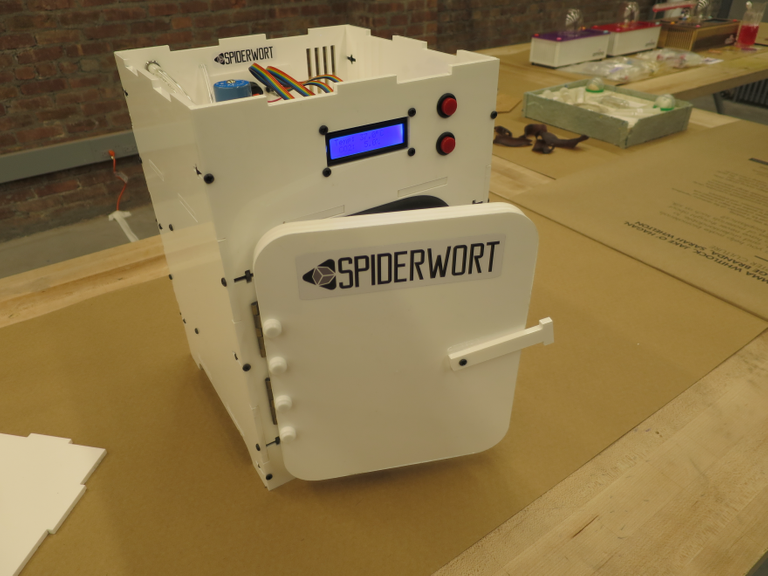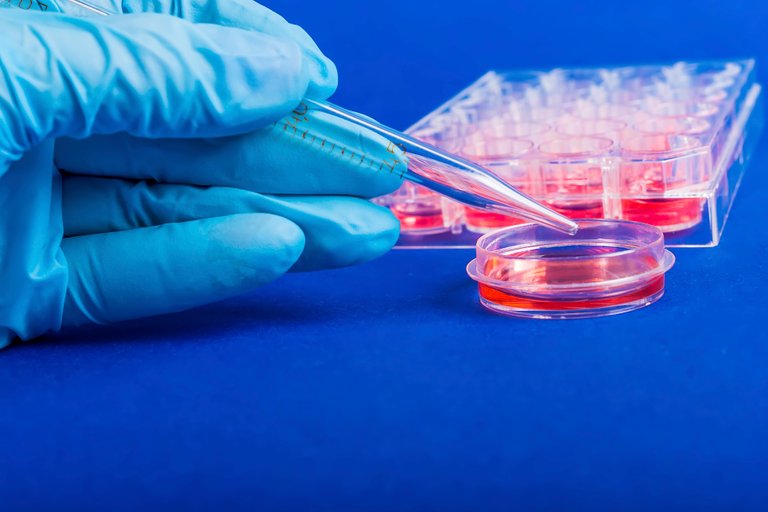
One new company that was founded just last year, Spiderwort, is greatly dedicated to exploring the future of synthetic body parts, and to developing open source platforms in the area of biological research.
They are looking to be able to provide the market with a means to be able to cultivate new body parts that are made right from scratch, with the use of a powerful CO2 incubator (pictured above). The product is expected to launch next year, and will be listed to sell for about $370 US.

The goal is to have citizen scientists, biohackers, and researchers etc, be able to grow body parts in their own lab setting.
It's ultimately going to provide a cost-effective and efficient way for those who are interested in investigating this area, to explore plant matter scaffolding in trying to create their own body parts from scratch.

Canadian researcher and co-founder of Spiderwort, Andrew Pelling, just this year wowed a TED audience with his display of his work on being able to grow a human ear by using apple slices; with the process of plant matter scaffolding. And if the process works well, then it might not be very long before we could potentially see a very cost-effective method introduced into the market, for trying to produce accessible biomaterial around the world.
Pelling and his team still haven't successfully implanted the ear in order to see if it functions correctly, but the hope is that this technology will foster a wave for investigation into the possibilities that these body parts could provide. They are still many years away from clinical trials.
Pelling has previously admitted that he imagines a world where perhaps someday we would be able to repair or rebuild or own bodies, much in the same way that we would make a meal in our own kitchen.
Spiderwort's first product is going to be the CO2 incubator and it's going to be the one critical piece of equipment that will be needed in order to grow both animal and human tissue and cells. Spiderwort is also dedicated to reducing the costs that are associated with research, as well as the time that it takes to receive the end results. Ideally, they want to help to make science a little more accessible to the general public.
pics:
Core77
OlinaPavlovich/iStock/Thinkstock
Alexis Williams via ideas.ted.com
sources:
http://spiderwort.bio/#welcome
http://ideas.ted.com/a-promising-way-to-grow-body-parts-using-an-apple/
http://motherboard.vice.com/en_ca/read/spiderwort-co2-incubator-living-cells-tissue-video
http://www.cbc.ca/news/canada/british-columbia/andrew-pelling-ted-conference-1.3449084
https://www.ted.com/talks/andrew_pelling_this_scientist_makes_ears_out_of_apples
http://www.core77.com/posts/58135/BioFabricate-2016-Growing-the-Materials-of-the-Future
There is no way this could go wrong is there?
Of course not! :-)
Can I get an oven so I can grow myself some longer legs?
Hmmm.... maybe do a back replacement as well... and then there are my elbows which could do with replacing.
Of course I'll need to update my eyes, since I've ruined them staring at a computer screen.
So correct me if I'm wrong..... If I do this, say grow a new ear, and out it on.
If my wife nibbles on my ear, will it be apple flavored?
Wow, this is mind-boggling! As an active member of the "Maker movement," I'm surprised, delighted, and excited by such a development...
I'm also at an age where a few replacement parts would come in handy! ;)😄😇😄

Sorry to disappoint you, but unfortunately there are real issues that need to be solved first, before being able to grow bigger tissue - it's the vascular system, so you can grow big parts that will get nutrition and oxygen.
notice the portion of the article that admits they are years away from clinical trials :D